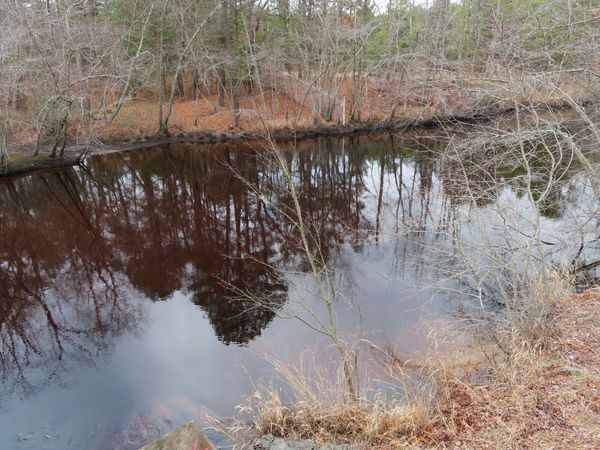
Just like history never ended, the climate wars roll on.
Science and the weather might be catching up with the nattering nabobs of negativity, to cite the delightful phrase used by former US vice-president Spiro Agnew towards Congressional critics of Richard Nixon, but the relentless politics of the predominant divisive issue of our times stand as an immovable roadblock to settlement.
About a century ago another American politician — with a real identity disputed — said the first casualty of war was truth. Again the maxim holds in the contests over climate. People have their own sets of facts and data, and conclusions are consistent only in the disputes surrounding them.
All players in the latest skirmishes of the climate wars in Canberra in recent weeks are claiming fundamentalism that seemingly defies progress.
The Coalition says Labor policies are inflationary and add new taxes; Labor says Coalition intransigence will herald a repeat of the death of Kevin Rudd’s carbon price in 2009; the Greens insist their purity was right 13 years ago and will be right again as they demand “no new coal or gas projects, full stop”.
As well as the regular mishmash of lies and half-truths, a new assumption has come into view. At best it’s questionable.
The Greens — especially the trio of new House of Representatives MPs who scored three inner-Brisbane seats (two from Labor, one from the LNP) last May — reckon their electoral success in 2021 had climate action as its bedrock.
There’s no doubt climate played a big part. The seats of Griffith, Ryan and Brisbane are the most prosperous electorates in Queensland, all featuring multimillion-dollar homes with “Climate Action Now” signs on their fences or hanging from upper decks.
This affluence brings the luxury of concern about climate — concern that’s genuine but not based on the absolutist approach of “stop all mining now” demanded by Greens Leader Adam Bandt and his Brisbane cheerleader Max Chandler-Mather (the MP for Griffith).
The swings enjoyed by the Greens in the three Brisbane seats mainly sat around 5% or 6% in a majority of booths. The bigger swings were in the parts of each electorate easily characterised as more wealthy (predominantly in low double figures but nudging 20% at some polling places).
The other factor inflating swings to the Greens wasn’t anything as urgently altruistic as climate action. The Greens try to ignore the fact climate action was a second order issue in these inner-city electorates, especially in some of those streets and communities where the anti-Coalition sentiment was greatest. In these parts, aircraft noise was just as much a driving vote changer and it remains the chief complaint and concern among many voters.
Chandler-Mather and his colleague Stephen Bates (MP for Brisbane) will hear it forcefully on Thursday evening at a community strategy meeting in Brisbane’s best known pub, the Breakfast Creek.
Bates deserves credit for organising the meeting but sentiment among residents is not going to be a lot of sympathy for his refrain of “I’m on your side and fighting for you”.
The common response is that the Greens were elected with “Stop Aircraft Noise” as a critical rallying cry and many voters think not enough (if anything) has been done. Brisbane voters say blaming the government for inaction has a fairly short shelf life. The reality is aircraft noise in Brisbane has been a contentious issue since the airport was expanded almost 40 years ago.
The problem has become entrenched ever since, with a final barrier to change happening when Labor was last in government in Canberra and Anthony Albanese was the infrastructure minister with responsibility for airports.
Another reality check in all this is the exposure of the Greens as the preeminent populist party in Canberra. As we’ve seen with climate action, they take unrealistic absolutist positions and then demagogue the other side. It’s the same populism they’re playing on public housing and infrastructure — two ambitious government programs built on the earnings from multibillion-dollar investment funds.
Chandler-Mather sounded more like (former radical leftist British Labour leader) Jeremy Corbyn than a Bob Brown figure when he railed against the sharemarket earlier this month while explaining the Greens’ refusal to support Labor’s social housing policy based on a $10 billion investment fund.
It’s still to be seen whether the Greens will repeat the historical error of Brown and his colleagues in 2009 when they voted with Tony Abbott to demolish the Rudd government’s carbon pricing mechanism, condemning Australia to a decade of inaction, indecision and investment uncertainty.
It is also going to look inelegant to say the least if Bandt, Chandler-Mather and the rest of the Greens side with Peter Dutton and the Coalition to stop any expansion of federally funded housing for the socially disadvantaged, women living in danger, and others unable to access shelter.
These are hard decisions for Bandt and his colleagues who feel pressure from an activist base empowered by the overhyped “Green-slide” of May last year.
Sometimes smart politics is about recognising a win for the community at large, owning it and reaping the rewards. If the Greens want to build on the success they enjoyed in May 2022 they should play a longer, smarter game and reject the easy path of Trumpy populism.







